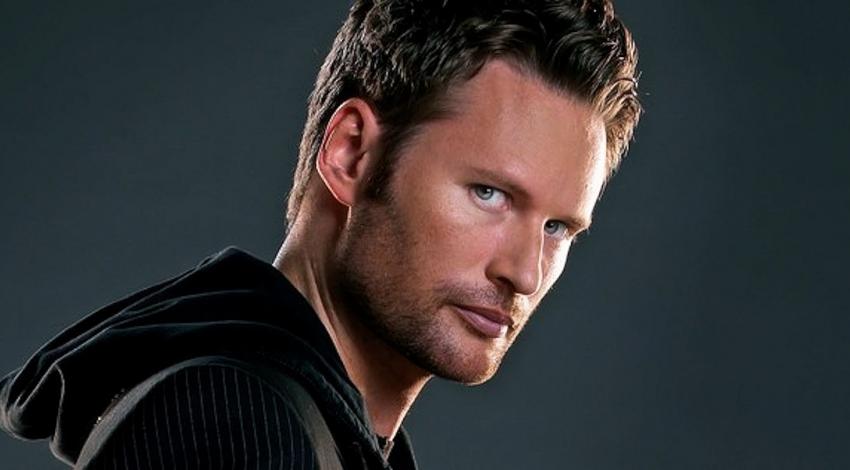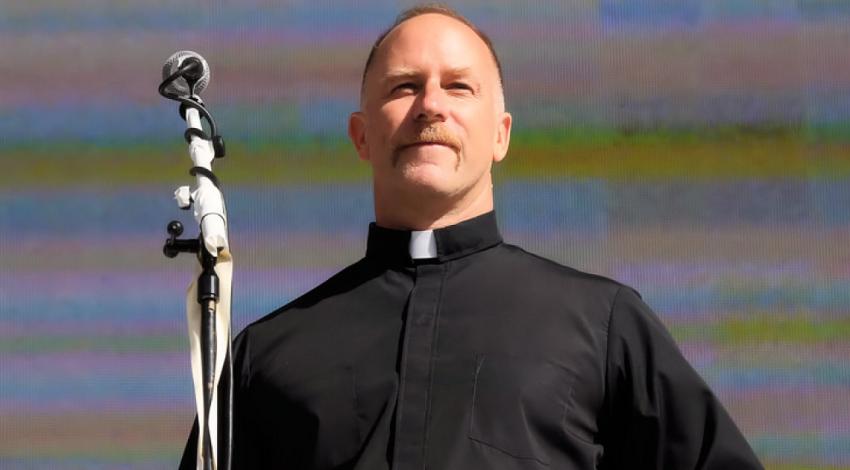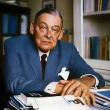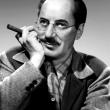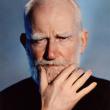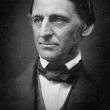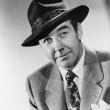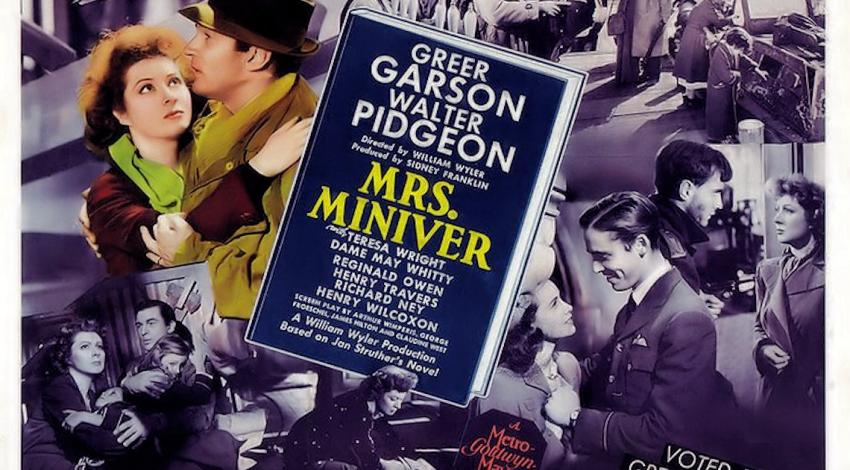All's Welles, that Ends Welles An interview with John Altman

Composer John Altman might be better known for his work on "The Matchmaker", "Hear My Song", and "Little Voice", but he also orchestrated and conducted for such composers as Eric Serra and Ryuichi Sakamoto. Recently he won an Emmy Award for his score to the HBO Original Film "RKO 281". SoundtrackNet had a chance to talk with John during his recent visit to Los Angeles.
John Altman | Composer
How did you get involved with RKO 281?
quote-leftI had just done "Vendetta" for HBO, which is about the worst mob lynching in American history. It's a really interesting story that takes place in New Orleans in the 1890's, and it didn't involve blacks, which surprised me. I had also worked with (RKO producer) Ridley Scott a lot on commercials - I have done virtually all of his big commercials over the past few years. Additionally, I do a lot of 1940s style big band stuff, so my name was coming from five different directions, and it just gelled. I came aboard at the script stage, since there was a lot of music that needed to be pre-recorded - the radio music, newsreel music, and of course the Bernard Herrmann stuff.
I have been steeped in the music of the 1930s and 40s since a very early age. One of my uncles arranges and composes music for big bands - in fact he conducted for Judy Garland, The Marx Brothers, Laurel and Hardy, and a lot of others. My first contribution to show business was during the war, when I gave my milk ration to John Boles, because he had an ulcer. My mother took me at the age of three to see Judy Garland at the London Palladium, and while I don't remember this, the story goes that during the concert I ran down the aisle shouting, "You can have a rest, I'll conduct the orchestra!" at my uncle. Judy laughed, lifted me up and sat me on her lap and sang to me. I don't remember it, but I'm told it's true. So ever since the age of 5 or 6, I have been grounded in music.
I started work by playing saxophone in rock bands, blues groups, and jazz groups - working for other people. Then I started to arrange for them as well. When I started working in film, it was as an orchestrator/conductor for other people - like Don Davis and Shirley Walker.
On the film The Sheltering Sky, did you work for both composers?
quote-leftNo - in that case I was hired to work for Ryuichi Sakamoto, and had no involvement with Richard Horowitz.
Since you have a history of conducting and orchestrating, how much do you do yourself on the films that you score as well?
I try to make a point to try to do everything - which can backfire on you. If you hear a score where there are pop songs thrown in, sometimes they can be so different from the score that there is a musical nightmare - and nothing flows. When I did Little Voice, for instance, it was imperative that I had charge of the whole musical aspect of the film. So I would pick the songs, and make sure that the sound quality was near to what we were doing so it would flow properly.
It's nice to work on a film where music has more of a role than being in the background. Putting it in the forefront where it can drive the character. That's why I love working with Peter Chelsom, because he's so music-driven as a director. He conceives whole sequences to music, in the film, and knows what the music is that's motivating it - which is fantastic. To me it's more interesting to try to unify it and bring it all under one umbrella.
So when you become involved earlier in a project, it's good. But when you come in late, as most composers do...
quote-leftSometimes it's a problem. In most cases you tend to say, "Oh well - that's what we're stuck with". In most cases what I try to do is stay as far apart between cues, so we're not butting up close. Give it a bit of space so that it can make its statement and then have a bit of space before my cues come in. I tend to be involved in most of the films I work on at the script stage - maybe because I'm fortunate - but it certainly helps. I talk to composers who have never been on a movie set - and it's extraordinary! To get the atmosphere of the production you're on, you have to get a sense of how the director works and what motivates him. By doing that, you meet everyone from the cast and crew - it makes a huge difference, rather than just slapping your music onto a film and then showing up to the premiere and no one knows who you are.
I actually had a director say to me, "I really like working with X, because he lets me write the music." I said, "I'm sorry, I really don't understand!" This director then informed me that the composer would let him sit at a synthesizer and hit keys and notes and things came out - and the composer would incorporate them into his scores! Everyone wants to jump in on it - some people don't want to be in a position where they can't articulate what they want. Rather than be in a position where they would ask for help (i.e. a director asking a composer to write the score), they would rather go in a completely wrong direction just so that they don't admit that they need help. I'm not saying that they're always right and always wrong. If a score gets rejected it doesn't mean that it was the greatest thing ever, and the director is an idiot. It's their film, and if it's not right, there's a reason. On RKO, I first wrote a dark Bernard Herrmann noir piece, and they said, "It's not film noir! This is too film noir!" So I reworked it and made it more romantic, and the director was delighted, and the studio said, "well, we like some of the noir", so I had to mix it up a bit, but I had to draw the line at some point.
Mark Isham told me a story where he wrote a score and the producer came in at the end and said, "Is this jazz?" Isham replied, "Well, I suppose, yeah." The producer then said, "I hate jazz," and the score was thrown out! I have to wonder what would have happened if Isham had said, "No!"
How was it to "resurrect" the ghost of Bernard Herrmann?
quote-leftIt was very interesting, I know a lot about him in that my contractor was his copyist for some time, and a friend of mine orchestrated for him, and I almost got to orchestrate for him. In some regards, I suppose I was lucky! He was a very frustrated man, who used to fly off the handle at any given moment with anybody. But he was a great composer.
Had you ever worked with Orson Welles?
quote-leftI actually did do a film with Orson Welles, which was a documentary about the history of Yiddish Cinema, Almonds and Raisins, which he narrated. It was one of the last things he did. Originally they wanted George Burns to do it, but he passed because he couldn't read the script in a studio situation, and then they asked Woody Allen, who was busy with something else. Someone suggested Orson Welles - apparently he directed a Yiddish production of Hamlet, and spoke it reasonably fluently which is quite fascinating.
It was an interesting project - there were scenes in the film that had bits of music, since they used the footage they had. Because they used everything, there were scenes where the music stopped out of the blue, and I had to write cues to bridge the gaps - then I had to degrade the quality so that it would match perfectly. You really wouldn't know where the original score left off, and mine began.
You said that you had played saxophone - did you ever take piano lessons?
quote-leftI had piano lessons from the age of 7 to 11, and that was it for formal lessons. Since then, I've been winging it. <laugh> I really don't know how, but I just knew how to conduct, orchestrate, and everything - it really is a genetic trait. I used to go and play rock and roll saxophone, folk singers, folk flute, Dixieland jazz on clarinet, progressive rock, out and out blues, etc. I just saw it as more opportunities to be involved in music. By the time I knew better, I had gotten all of these styles under my belt, then I started focusing on the classics. I wound up conducting the Royal Philharmonics, and they asked me to come back and conduct other things! So I was able to jump in a to something like Titanic without thinking about it.
What did you do on Titanic?
quote-leftI produced and arranged all of the source music in the film - it was 90 minutes of music! My biggest regret is that there wasn't a CD of all of the music we had done for the film. What we did was absolutely wonderful. I Salonisti played absolutely brilliantly. If you watch the film, it's all of the period music - it's so good, and it's a shame it never got released.
You said that you did commercials for Ridley Scott - how many commercials have you done?
quote-leftI've done to date approximately 4,000 commercials. It was 3,000 about 5 years ago, so I'm guessing it's 4,000. It's steady work, and I can turn it around in an afternoon or a few days. It's funny - I got a phone call once from a dubbing stage by a friend of mine who said, "we're dubbing a commercial for UniRoyal Tires, and it's finished, but we're realizing it needs music!" They hadn't thought about it - and now they realized they needed it! So I had to get a synth player and on my way to the dubbing theater, I thought of the music. When I got there, I told the keyboard player what I had in mind, and we recorded 30, 60, and 90-second versions of the commercial. We were done in an hour. That commercial ran for 15 years, and the music was on every single commercial they ever made. It became their theme - it's still on the weather forecasts sponsored by UniRoyal! That silly little bit of nonsense that I wrote in the car on the way to the dubbing stage!
Do you have a dream project?
quote-leftI'm writing a film musical at the moment with lyricist Don Black. We've already written a few of the songs - it's an original story of mine that's been taken by Michael Kuhn, who was the head of Polygram Films. We're talking to the two writers who worked on the last few Bond films. It's a contemporary story and the music is going to be a throwback to the 1940's, in a Cole Porter type of vein. There is the definite potential for a theatrical spin-off. We've been screening Strike Up The Band and Girl Crazy and Babes on Broadway - they make such an impact. I realized that most people have never seen those types of films on the big screen - they have no idea of they type of response that watching a Busby Berkeley dance sequence on the big screen is really like!
What are you working on now?
quote-leftI'm doing a Hallmark miniseries, "The Monkey King". It's a three-hour long "epic" based on the classic Chinese legend. There will be two hours of action music in the film - it's great fun, but it's a lot of writing.
About: As of this article's original publication, John's Emmy-winning score to RKO 281 had no planned release, but there was talk of putting one out. The Monkey King aired that winter on television.
Republished from:
Soundtrack.net
The Art of film and Television Music
Release date: 09/24/2000
All Rights Reserved







